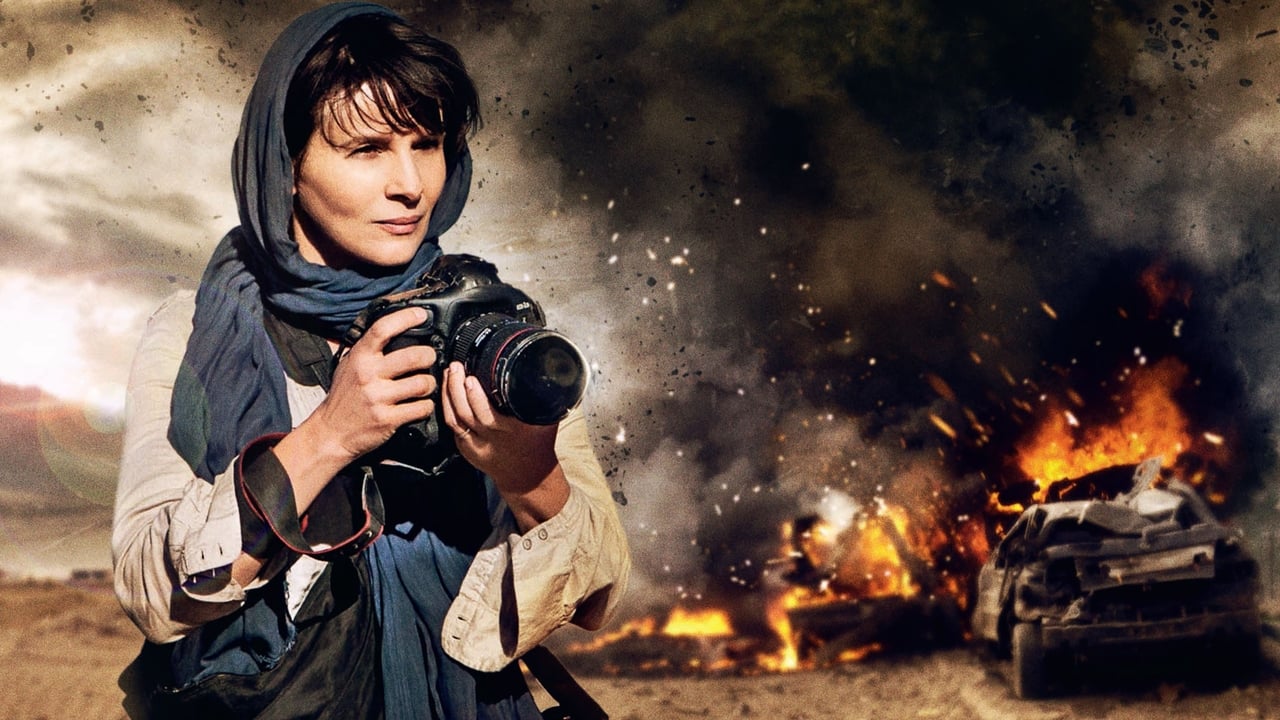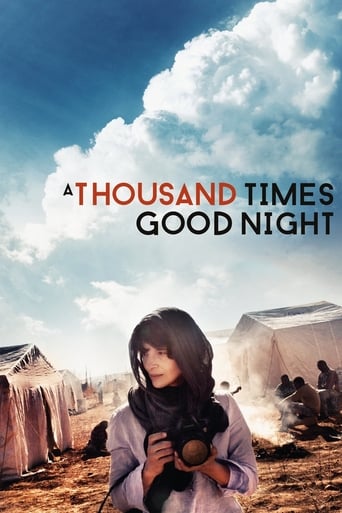

This is one of the few movies I've ever seen where the whole audience broke into spontaneous, loud applause a third of the way in.
... View MoreThe first must-see film of the year.
... View MoreIf you're interested in the topic at hand, you should just watch it and judge yourself because the reviews have gone very biased by people that didn't even watch it and just hate (or love) the creator. I liked it, it was well written, narrated, and directed and it was about a topic that interests me.
... View MoreI think this is a new genre that they're all sort of working their way through it and haven't got all the kinks worked out yet but it's a genre that works for me.
... View MoreWar photographer Rebecca (Juliette Binoche) is filming a female suicide bomber's preparations. The bombing goes wrong and she is severely hurt. Back home with her family, her husband Marcus (Nikolaj Coaster-Waldau) is struggling to hold it together. He demands that she stop endangering herself. She relents and goes on a safe job in Kenya with their daughter Steph (Lauryn Canny). When gunshots ring out, she can't resist.This is a quiet poignant performance from Binoche. The wars have taken a toll on her and it shows in her eyes. She has this haunted look that is so effective in this movie. I wish the movie pushed the drama more because the story needs a more definitive climax. At one point, Rebecca takes her two daughters in her car. I really wish she had driven off with the girls. It's an opportunity to elevate the drama if she could break down at that point and then later return the kids home. It would make the final decision even more poignant.
... View MoreThis represents the first great movie I've seen in awhile. We think it's the old Hollywood story about families sticking together. Instead a mother tries to honor her teenage daughter's idealism about the world - an idealism that's desperately needed but nearly impossible to achieve. This mixed in with a home front situation and seems to be beyond ideal. The acting is frequently subtle, sometimes powerful, but they certainly cast the right amount of people (i.e. not too many) to solidify a strong message. I was impressed at how directly the dialogue took on world politics and non-profit organizations. Beautiful camera work - the theme - and a surprise ending make this a must-see.
... View MoreI saw this at The Heartland Film Festival in Indianapolis this weekend. It's been 24+ hours since the movie ended, and it's themes are still with me. The horror of war..the difficulty balancing passion and pragmatism...what do children need from their parents... My mind changed such that the final take away is the theme of the film. Life is difficult and decisions have consequences. I want to have coffee with Rebecca and shake her. Tell her how much her children and husband need her..Tell her the sacrifice isn't worth it. Atrocities will continue. Taking pictures of suicide bombers does glamorous the cause. Taking pictures of deceased Africans doesn't bring them to life. Why are you so angry? For these reasons, I must recommend this film. It is not only well acted, but it creates and stirs up emotions, makes you think. Some time more than entertainment is demanded from a film.
... View MoreWar correspondents, what does their work lead to? Is it just conflict porn to the morning coffee or can what they do make us react? And act?Juliette Binoche follows a suicide bomber in Kabul, from preparations to explosion. But is she somewhat responsible for what happens? She starts to think so. And she also has a family. Has she some responsibility for what's happening to them?That's the weak part of this film. Not that the script is bad, but the family conflict is a little too expected, from its up to its down. The most important question remains. What international media means to the world.
... View More